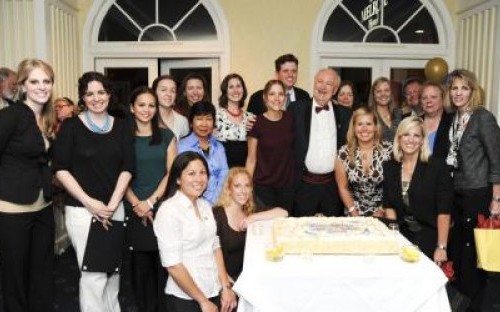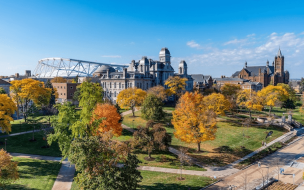In 1634 St Mary’s County became the site of the first Colonial landing in Maryland. 375 years later, students at The George Washington University School of Business (GWSB) battled it out to leave their mark on the idyllic but overlooked patch of eastern seaboard.
In May this year 25 students on the Master of Tourism Administration degree at GWSB competed to develop a marketing idea to boost tourism in the county, which has a population of 86,000. “St. Mary's has a lot of potential, but is a little out of the way for people from Washington D.C. We realized it needed re-branding to attract tourists,” says Professor Raynald Brouard, the man behind the project and a director of the Masters program.
The program's practical emphasis has made it popular among students of tourism and event management. This year, it attracted graduates from countries as diverse as Costa Rica, Japan and Germany. “We even had the vice president of tourism of the Philippines on board,” says Brouard.
He also thinks that acting locally is more effective than developing strategic plans for big corporations: “A local project has much more potential to actually be implemented in the future.” Brouard, a French-Canadian, has recently retired from academia to start a new career as a tourism consultant in Jamaica.
According to participant Florian Herrmann, GW is particularly great at two things: politics, naturally, and practical relevance. “Projects here are not based on a twenty-page case study… you actually go to a place where you can see the problem and deal with it on the ground. An outstanding experience.”
Herrmann, who was born and bred in Germany, has lived in a small town in Wyoming for the past five years, working as a marketing manager for Yellowstone National Park. He particularly enjoyed finding out what local people and entrepreneurs thought was the problem.
Each team had only 72 hours to research and finalize a marketing strategy, which put every member of the group under enormous pressure. Forced to apply the theories they’d learned over the course of their degree, not all groups managed to get it right.
Herrmann’s group suggested turning St. Mary's into a destination for wine lovers, a trend among America's middle classes, but they failed to consider whether it was even possible to grow wine in the region.
The winning team suggested something more practicable: re-branding the county as a destination for outdoor activities like kayaking and hiking.
The teams faced the added challenge of finding a solution in the midst of all the viewpoints around the table. “One girl from my team was from Nigeria, for instance. She looked at St. Mary's challenges in a completely different way than most of us. For her, it was the county's underdog status that had to be addressed first,” recalls Herrmann. Sometimes, he says, it was hard to find a compromise.
Herrmann admits he held some prejudices at first, and was quickly proved wrong: “My initial reaction was: what is this girl from Nigeria doing here?” But when he saw that “she was very clever intellectually” he realized how wrong he was. “She did an absolutely brilliant job.”
The “girl from Nigeria” is Rosana Forsuelo. Born in the Philippines, she has spent the last eighteen years setting up, running and teaching at a catering and hospitality college for women in Lagos, Nigeria. Initially she was a little anxious about feeling out of place in Washington DC: it was her first visit to the United States. In the end, however, “it was a great experience working with all these different people.”
She particularly appreciated the welcome and support she received from her lecturers, especially Brouard: “When I met him for the first time, he made me feel like we had known each other forever.”
But Forsuelo has also had her fair share of struggles: “I was really exhausted when I arrived in Washington.” She combined her degree at GWSB with working at the school, doing consultancy work for hotels in Nigeria and raising a family. “Like in every team, there were some people in our group who did not contribute as much as they should have, which really made me furious,” she adds.
Conscious of the cost of her degree; overall tuition is more than $38,000; Forsuelo wanted to do as well as she possibly could: “I probably did take on more responsibility than some other people because I took it more seriously.”
RECAPTHA :
7c
f6
59
80







